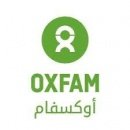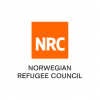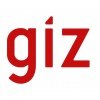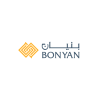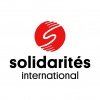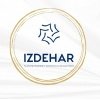Project Review and Learning
Terms of Reference
Project Review and Learning
Tentative Dates: August 2019
Background:
Oxfam is currently implementing the “Developing equitable agricultural production and market systems for resilient economic development in the occupied Palestinian territory” funded by the Swedish International Development Cooperation Agency (SIDA). The project inception phase launched in November 2015 and the original end date is November 2019.
Between October 2018 and January 2019, the project went through an external midterm evaluation which was validated in a workshop with SIDA in February 2019. One of the key recommendations of the evaluation was for Oxfam and SIDA to consider extending the work with some of the programme partners following a review process. With initial interest from both SIDA and Oxfam, a cost extension will be submitted that entails a thorough review process that culminates in the design of a new phase of the project. Towards this end, Oxfam is seeking support of a qualified team to undertake a comprehensive, participatory review of the current project with the aim of informing future project development.
Objectives:
- To review and document the project’s achievements, capture early signs of impact, and draw on learning that brings forward recommendations to Oxfam and partners under SIDA project.
- To put forth recommendations based on identified lessons learnt that will inform high-level future design for the new project (strategies and approaches; key areas of intended change and outcomes and recommendations for boundary partners).
Research/ learning Questions:
- To what extent can a specific (net) impact be attributed to the intervention?
- Did the intervention make a difference?
- How has the intervention made a difference?
- Will the intervention work elsewhere i.e. replicable and scalable?
Scope of Work
- Main Tasks:
- Review all information about the work that has been carried out under SIDA project, including annual reports, midterm review, baseline and midline reports, case studies, success stories, etc
- Review of the successes and failures of the previous project and how they can be addressed, where value add for phase two can be achieved
- Review the project’s Theory of Change and suggest top-level intended changes and outcomes for the new project
- Hold field visits in the West Bank and Gaza to project sites and meet with market actors to better understand progress, attitudes, and perceptions of the intended changes in the market systems
- Conduct a 2 day consultative workshops with partners and key stakeholders to review and distil findings and learning
- Analyse information and consider key review and planning questions related to project delivery, context, outcomes, impact and TOC
- Identify with partners 5-6 ‘most significant change stories’ to document in case studies at a later stage (i.e. during the cost extension)
- Outline key elements of the new project design
- Hold a ‘testing’ workshop to validate initial conclusions/recommendations
- Write report on the findings to circulate/present to partners and donor
- Measuring changes approach:
- Using Mixed methods approach: Consultant should utilize mixed methods approach combining qualitative and quantitative approaches and based on the theory of change. The project evaluation should explicitly focus on assessing the extent to which systemic and sustainable market change and large-scale impact have been achieved including: Crowding in, Copying, Sector growth, linkages, and other indirect impact as a result of the project intervention strategies.
- Take an investigative approach: The consultant must adopt a flexible approach to measurement. Accepting that systemic change cannot be fully predicted in advance, a certain amount of detective work is required to establish what has changed in the market system following the intervention. This requires the consultant not only to verify the pathway which they predicted, but to be alert for unexpected changes. Participatory approaches may be particularly valuable to uncover unexpected information.
- Examine trends: Consultant should not just take static snapshots of market performance, but seek to understand the type and pace of change, and reasons for this.
- Triangulate information: Information should be triangulated from multiple sources. This means that consultant should not rely on one source of information, but look for confirming or contradictory information from other sources. This will include stakeholder feedback, as above, but could also include reports, country and market statistics, and other secondary data.
- Assess stakeholder feedback: In the project, there are multiple stakeholders, including the private sector, governments, local partners, and poor small scale producers, consumers, and employees. They will each have different information about changes that have taken place, and a different view about whether they are positive or negative, and why. Consultant should speak with as many stakeholders as possible, including the poor who benefitted from the project.
- Measuring the impact of systemic change on the poor SSP’s: Consultant should find both qualitative and quantitative evidence of impact on targeted poor SSPs.
- Assessing Additionality: Consultant should assess to what extent the support of this project is additional. Consultant has to consider the difference between the counterfactual (what would happen anyway), and the position if and when the intervention is implemented. This includes an explicit consideration of whether the change would happen anyway, and if it would happen in the same way. This includes financial additionality, which focuses on the fact that project funds do not substitute other available funding, from the market actors or other parties. However, inputs can also be non-financial in nature, such as knowledge. ‘Time additionality’ can be reported if inputs/ financial will accelerate the implementation of a project by a significant amount of time based on credible financial projections.
- Assessing Sustainability: Consultant should assess static sustainability and dynamic sustainability. This includes assessing capacity development of market actors, creating space for innovation, behavioral changes maintained after external support / intervention concludes; the commercial viability of the new business models after external support is withdrawn, leveraged investments, private and public sector investment catalysed (as proxies for partners’ buy-in to change, and hence the sustainability of change), institutional or structural change e.g. better relationships, aligned incentives, adaptability.
Outputs/Deliverables
- 1. Identified 5-6 case studies: that would later be developed to document the successes and/or failures of the current project and how they can be addressed, where value add for new project can be achieved. The case study choice should be justified in 1-2 paragraphs each, giving a general outline/highlights of what the case study needs to focus on.
- A final report: structured in two main chapters, the first chapter on the review exercise including highlights on impact, documentation of learning and recommendation around scope, partnerships, implementation approach, key objectives and outcomes, etc… The second chapter to focus on the direction for the new phase design including key areas of intended change and outcomes – based on the Market System Development Approach.
Financial Proposal
Please submit the proposal (technical & financial offer) and requested documents by email ([email protected] ) before July 20, 2019 COB, addressed to: Nabila El-Ahmed quoting the reference code in the subject line of your email.
- Prices are valid for 60 days.




